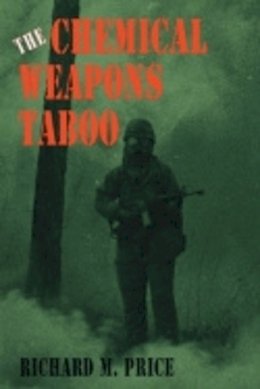
The Chemical Weapons Taboo
Richard M. Price
Richard M. Price asks why, among all the ominous technologies of weaponry throughout the history of warfare, chemical weapons carry a special moral stigma. Something more seems to be at work than the predictable resistance people have expressed to any new weaponry, from the crossbow to nuclear bombs. Perceptions of chemical warfare as particularly abhorrent have been successfully institutionalized in international proscriptions and, Price suggests, understanding the sources of this success might shed light on other efforts at arms control.
To explore the origins and meaning of the chemical weapons taboo, Price presents a series of case studies from World War I through the Gulf War of 1990–1991. He traces the moral arguments against gas warfare from the Hague Conferences at the turn of the century through negotiations for the Chemical Weapons Convention of 1993. From the Italian invasion of Ethiopia to the war between Iran and Iraq, chemical weapons have been condemned as the "poor man's bomb." Drawing upon insights from Michel Foucault to explain the role of moral norms in an international arena rarely sensitive to such pressures, he focuses on the construction of and mutations in the refusal to condone chemical weapons.
Product Details
About Richard M. Price
Reviews for The Chemical Weapons Taboo
The Journal of the United Service Institution of India
An interesting and insightful look into the murky world of morality in modern warfare.... An excellent book... clear in its focus, effectively presented, and persuasive in its arguments. It should most assuredly find its way onto the shelf of anyone seriously interested in the historical, moral, or pragmatic repercussions of weapons of mass destruction.
Millennium
Journal of International Studies
Price persuasively confirms that chemical weapons have militarily useful capabilities.... Price's thorough scholarship shows how chemical weapons have become a metaphor for intolerably offensive extensions of violent capabilities; the efforts to control them have become a metaphor for the potential ascendancy of law over those capabilities. It is a unique historical lesson, with potentially optimistic ramifications.
Barry Kellman
The American Journal of International Law
